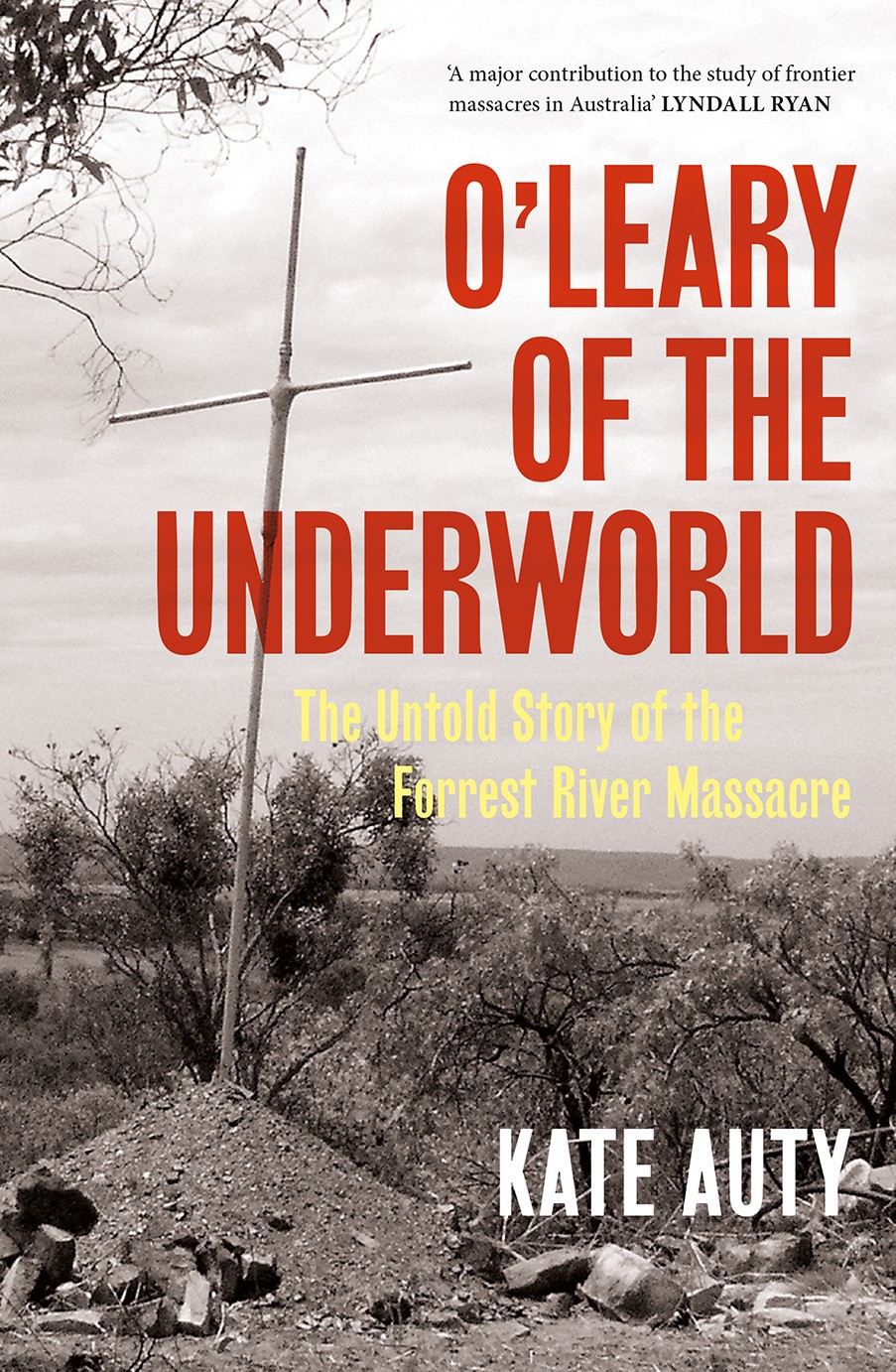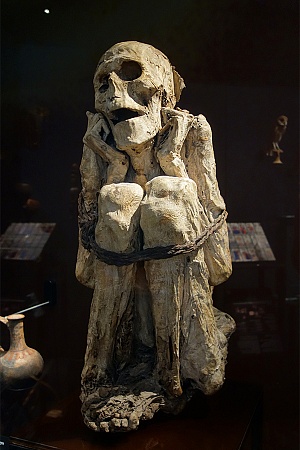O'Leary of the Underworld: The untold story of the Forrest River Massacre
La Trobe University Press, $34.99 pb, 288 pp
Invitation to remember
This is no ordinary history book. It is in part an account of a massacre and in part a biographical study of one of the perpetrators, Patrick Bernard O’Leary, yet it reads more like a novel, or a prosecutor’s statement in court, than like a conventional history. It is a truly angry book, full of rage at the fact that the perpetrators of a massacre were never brought to justice, rage at the justice system’s treatment of Indigenous people. Its desire to ensure that the victims are never forgotten starts with the dedication, to Warrawalla Marga, an old woman ‘who was walked to her death with a chain around her neck by O’Leary and others in June 1926. She and all the others are not forgotten.’
The massacre that forms the core of the book occurred in the Forrest River region in the north-eastern part of Western Australia, the land of the Yiiji people (though Auty does not say so). This area, with its violent history, is the ‘underworld’ of her title. It was cattle country, with a combination of large landholdings and some smaller holdings taken up by soldier-settlers, veterans of World War I. One of these smaller holdings, Nulla Nulla, was owned jointly by Frederick William Hay and Leopold Overheu. In May 1926, after two drought years, several hundred Aboriginal people gathered near Nulla Nulla for ceremony, leading Hay and Overheu to fear an outbreak of cattle killing. At dawn on 22 May, two police and two trackers invaded and dispersed the Aboriginal camp; soon after, they found that Hay had been speared to death. In the manner of the punitive expedition which had been a key feature of frontier violence across the continent for over a century, a large patrol consisting of police, special constables (of whom O’Leary was one), civilians, and Aboriginal trackers pursued the killers for five weeks, until, on information from the local missionary, Ernest Gribble, police found and arrested Lumbia, the man solely responsible for Hay’s death. Despite evidence that Hay had savagely attacked him, Lumbia was found guilty of murder and sentenced to death, which was later commuted to life imprisonment.
Continue reading for only $10 per month. Subscribe and gain full access to Australian Book Review. Already a subscriber? Sign in. If you need assistance, feel free to contact us.
















Leave a comment
If you are an ABR subscriber, you will need to sign in to post a comment.
If you have forgotten your sign in details, or if you receive an error message when trying to submit your comment, please email your comment (and the name of the article to which it relates) to ABR Comments. We will review your comment and, subject to approval, we will post it under your name.
Please note that all comments must be approved by ABR and comply with our Terms & Conditions.